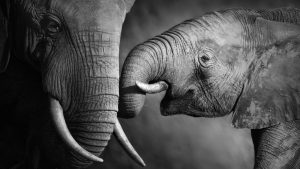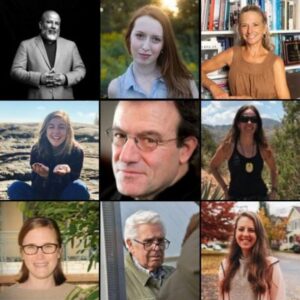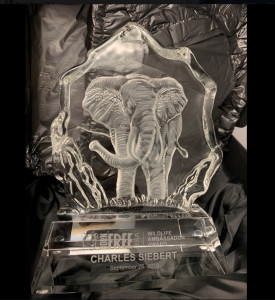 Meaning and language are commonly thought to be the exclusive province of humans. But is this thinking simply our own anthropocentric conceit? On November 2, 2019, Menakka and Essel Bailey ‘66 Distinguished Visiting Scholar in the College of the Environment Charles Siebert led a discussion about the nature of meaning in the world, the myriad of forms in which it manifests, and the many ways in which they inform our place in the world. The discussion, What on Earth Are They Saying: Listening and Learning Beyond the Human, was the 17th Annual Where on Earth Are We Going? seminar sponsored by the Robert F. Schumann Institute of the College of the Environment.
Meaning and language are commonly thought to be the exclusive province of humans. But is this thinking simply our own anthropocentric conceit? On November 2, 2019, Menakka and Essel Bailey ‘66 Distinguished Visiting Scholar in the College of the Environment Charles Siebert led a discussion about the nature of meaning in the world, the myriad of forms in which it manifests, and the many ways in which they inform our place in the world. The discussion, What on Earth Are They Saying: Listening and Learning Beyond the Human, was the 17th Annual Where on Earth Are We Going? seminar sponsored by the Robert F. Schumann Institute of the College of the Environment.
- Watch a recording of the seminar here: Where on Earth Are We Going?

Charles Siebert is the author of three critically acclaimed memoirs, The Wauchula Woods Accord: Toward a New Understanding of Animals, A Man After His Own Heart, and Wickerby: An Urban Pastoral, a New York Times Notable Book of 1998, as well as a novel, Angus; an e-book Rough Beasts: The Zanesville Zoo Massacre One Year Later; and a children’s book, The Secret World of Whales. A poet, journalist, essayist, and contributing writer for The New York Times Magazine, he has written for The New Yorker, Harper’s Magazine, Vanity Fair, Esquire, Outside, Men’s Journal, National Geographic, and numerous other publications. He presently teaches creative writing at NYU Abu Dhabi.
Siebert’s seminar was followed by a panel discussion with COE Think Tank members Camille Britton ‘20; Anthony Hatch, associate professor and chair, Science in Society Program; Antonio Machado-Allison, visiting scholar, College of the Environment; Sara McCrea ‘21; Helen Poulos, adjunct assistant professor of Environmental Studies; Charles Siebert,; Courtney Weiss Smith, associate professor of English; Melissa Thornton ‘20; and Kari Weil, University Professor of Letters.
